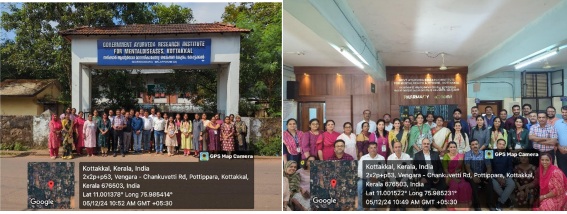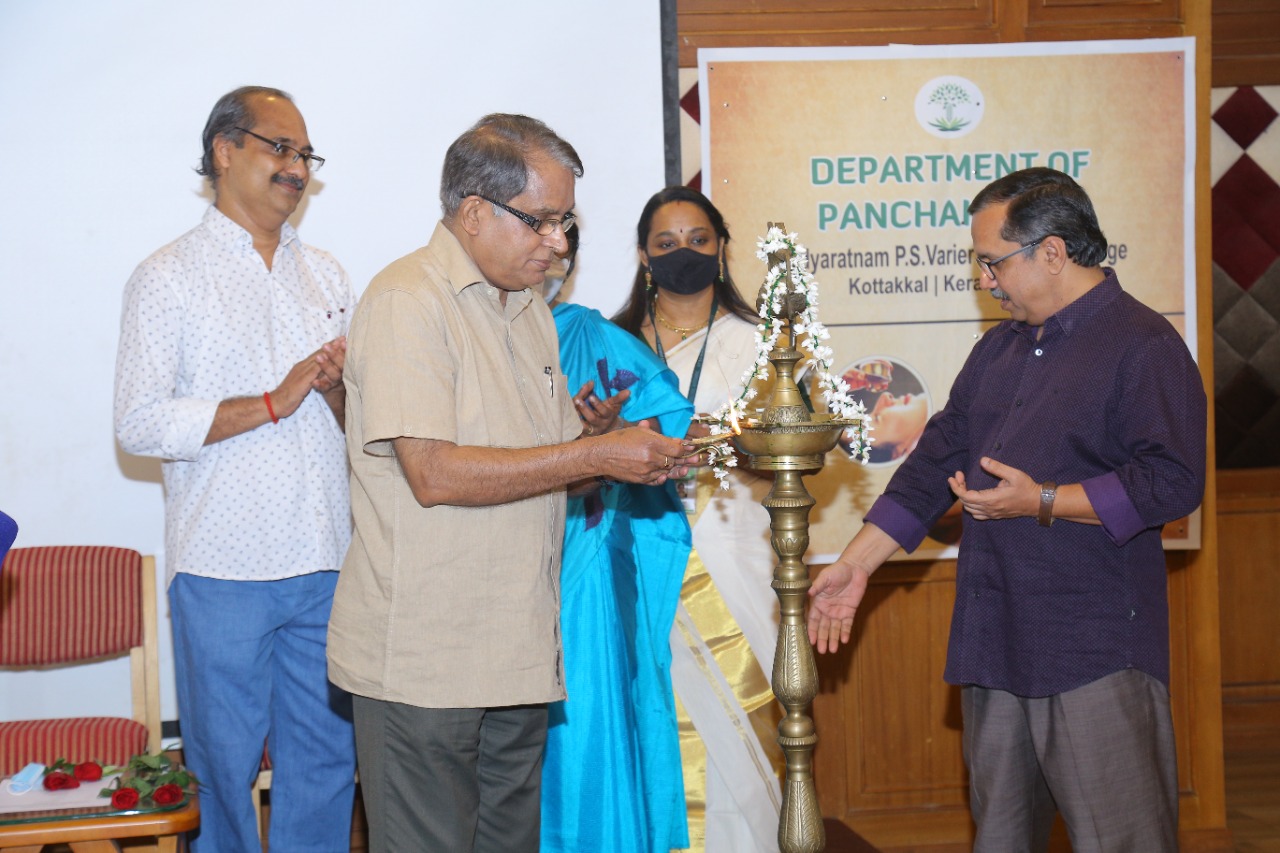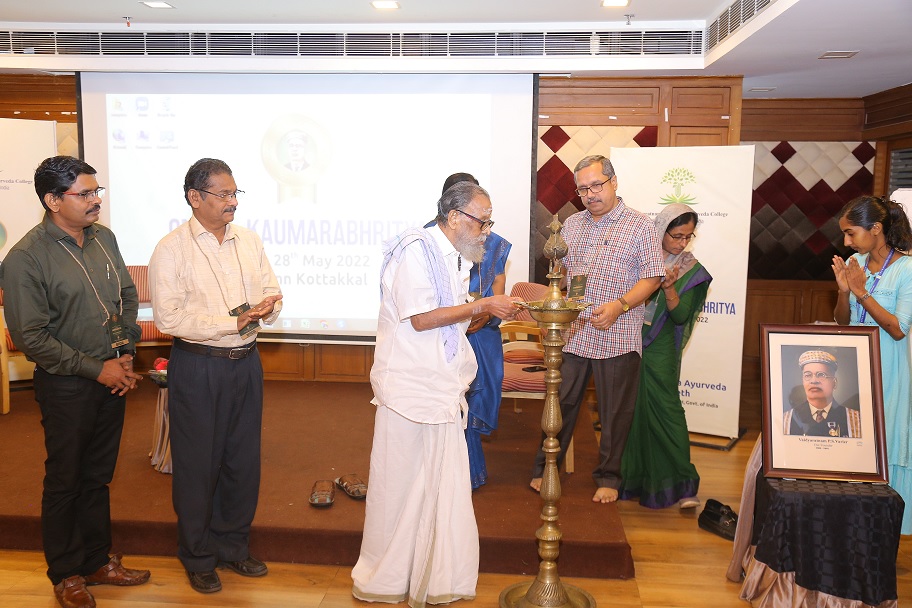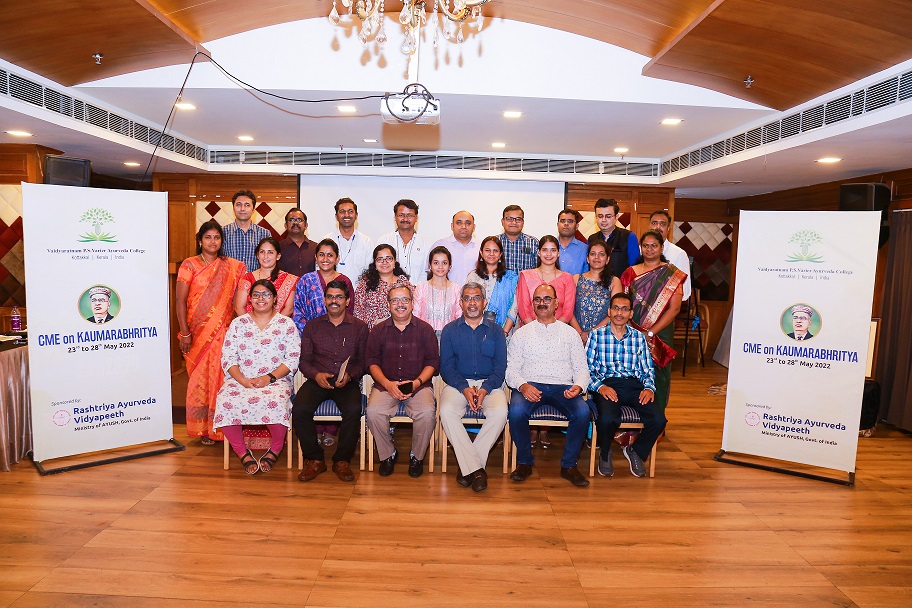CME PROGRAMS
CME – Kayachikitsa (Manasa Roga)
2nd December 2024 – 7th December 2024 | Boon Inn Hotel

The 6-day Continuing Medical Education (CME) program on "Manasa Roga (Psychiatry)" organized by the Kayachikitsa Department brought together eminent faculties and enthusiastic delegates. The program focused on diagnosis, management, anxiety disorders, mood disorders, substance use disorders, psychotherapies, and psychopharmacology.
Delegates participated in case discussions, workshops, and institutional visits to GARIM, CMPR, Arya Vaidya Sala, and V.P.S.V Ayurveda College.
📄 Download ReportCME – Kaumarabrithiya (PUTHREEYA ’24)
27th August 2024
This CME bridged modern pediatric neuroscience and Ayurvedic principles. Eminent speakers discussed neurodevelopment, ADHD, gut microbiome, pharmaco-nutrigenomics, and personalized medicine in Ayurveda.
Product presentations by Vaidyaratnam Oushadhasala and interactive sessions enriched the learning experience for delegates.
🖼️ View GalleryCME – Panchakarma & Ayurveda Day Seminar
A 6-day Panchakarma workshop was organized under Rashtriya Ayurveda Vidyapeeth from 03.01.2022 to 08.01.2022 with participation from teachers across Kerala and other states.
A special seminar on Kerala textual traditions in Panchakarma was conducted on 19.10.2022, featuring classical texts and scholarly reviews. Seasonal purification programs such as Rituvamana were conducted for final year BAMS students.




